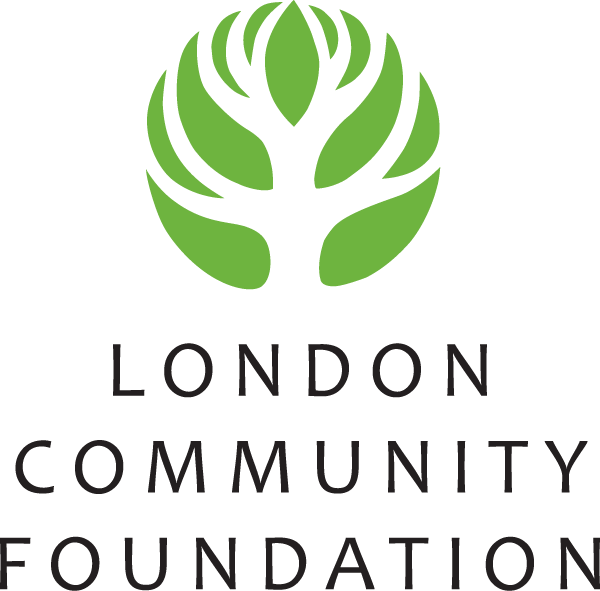Health and Homelessness Fund For Change
Health and Homelessness Fund for Change
The Health and Homelessness Fund for Change is fuelled by an initial $25 million commitment from a London family who wish to remain anonymous. The family also generously backed a community matched-giving campaign. Through the generosity of Londoners and the anonymous donor family, the Fund for Change has now grown to $37.6 million.
The Fund for Change supports London’s response to the health and homelessness crisis, including the ‘Whole of Community System Response’. The Fund for Change is administered by London Community Foundation in partnership with the donor family.
Matching Fund
When you give now, every dollar becomes two thanks to a matching fund powered by the generous anonymous donor family. You can donate online, or, to make a gift of shares and securities, please complete our share transfer form, and forward it to your broker.
Progress Update – as of February 2026
The generosity of Londoners is already improving the lives of people experiencing homelessness. The Fund for Change has distributed and committed more than $26 million to create long-term solutions to homelessness, including specialized Hubs and highly supportive housing.
Evaluation Report: Health and Homelessness Whole of Community System Response
Prepared by the Centre for Research on Health Equity and Social Inclusion (CRHESI) at Western University, the evaluation report examines the progress and challenges of the Whole of Community System Response. Published September 2025. View the report
Projects Supported by the Fund for Change – as of Ferburary 2026
Hub:
Atlohsa Family healing Services and St. Joseph’s Health Care London
Fund for Change Support: $1.3 million for capital
Serves: Indigenous people
Status: Open; located beside Parkwood Institute
Hub:
Youth Opportunities Unlimited (Y.O.U.) and London Health Sciences Centre
Fund for Change Support: $3 million for capital
Serves: Youth (aged 16 to 24)
Status: Open across LHSC and Joan’s Place
Housing For Veterans:
London Veteran Village: by Homes For Heroes Foundation on the grounds of Parkwood Institute
Fund for Change Support: $4 million
Serves: Veterans
# of Units: 25, along with a resource centre, community gardens, and wraparound supports.
Status: Targeting the end of summer 2026
Highly Supportive Housing:
Coves Landing (Elmwood Place) by Developing for Change (Tricar, Auburn Group, Drewlo Holdings, Sifton Properties) and Indwell
Fund for Change Support: $4 million for capital; $1.7 million for operating
# Highly Supportive Housing Units: 50
Status: March 2026
Highly Supportive Housing:
Indwell – Hilda Stuart Lofts (formerly War Memorial Children’s Hospital) conversion at Village SoHo
Fund for Change Support: $1.46 million for capital
# Highly Supportive Housing Units: 42
Status: Targeting 2026
Highly Supportive Housing:
London Cares – House of Hope
Fund for Change Support: $845,560 for one year of operating
# Highly Supportive Housing Units: 49
Status: Open
Highly Supportive Housing:
CMHA Thames Valley addiction and mental health services
Fund for Change Support: $5 million for capital
# Highly Supportive Housing Units: 115 in two new locations
Status: Targeting 2026 and 2027
Highly Supportive Housing:
Indwell - Health Services Building conversion at Village SoHo
Fund for Change Support: $4.8 million for capital
# Highly Supportive Housing Units: 96
Status: Targeting 2027
The Role of Fund for Change
The Fund for Change currently provides support to fast-track long-term solutions, such as specialized Hubs and highly supportive housing, primarily through capital funding. This can include:
Refurbishment of buildings.
Equipment needed by frontline staff, such as computers and desks.
Physical equipment needed to meet basic needs, such as beds, sinks, showers, etc.
The elements of London’s community-wide response to the health and homelessness crisis supported by the Fund for Change may evolve over time in response to needs.
The Health and Homelessness Whole of Community System Response
The Health & Homelessness Whole of Community System Response is a coordinated, community-wide effort to address the growing number of individuals in London experiencing homelessness and housing deprivation—many of whom have increasingly complex health and social needs.
More than 200 individuals representing 70 organizations from a wide range of sectors came together to co-create a strategic roadmap for transformation. The resulting system is people-centred and housing-focused, designed to meet individuals where they are—without judgment—by offering culturally safe, low-barrier, inclusive care that is trauma- and violence-informed. The approach is rooted in anti-oppression and anti-racism principles and grounded in harm reduction.
Central to this work is the understanding that housing is healthcare—and a fundamental human right.
